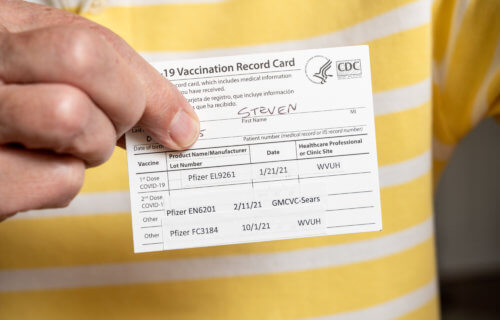ATHENS, Ga. — As many people are still getting their first or second COVID-19 vaccine injections, some are already lining up for a booster shot. However, health officials still haven’t made it perfectly clear if everyone will need a third shot or when the initial vaccination will wear off — if it does at all. Now, researchers from the University of Georgia report COVID-19 antibodies do appear to drop off six months post-vaccination. However, that doesn’t mean a booster shot is necessary right now. Study authors explain a lower antibody count doesn’t mean a drop in protection.
“Overall, antibody levels are decreasing, but their ability to protect against infection isn’t,” says lead study author Ted Ross, director of UGA’s Center for Vaccines and Immunology, in a university release. “The quality is still there even if the total quantity has gone down.”
Recovering COVID patients may only need 1 shot
Researchers conclude that vaccination offers much more robust and long lasting COVID-19 protection than natural immunity achieved via infection and recovery. Vaccinated study participants displayed much higher levels of neutralizing antibodies. Moreover, antibodies gained via vaccination are also more effective at “binding” with the virus, which prevents it from infecting cells.
It’s worth noting that this research also concludes most individuals who had already recovered from COVID-19 only needed a single jab of either the Pfizer or Moderna vaccines to achieve full immunity. Researchers stress, though, that most doesn’t mean all. Some recovered individuals will indeed require both shots and there is no way to tell who does or who doesn’t. With all that in mind, Prof. Ross advises everyone to get both shots.
“It doesn’t hurt you to get the second one,” the researcher states.
These findings are part of a larger multi-year surveillance program encompassing over 3,100 people between the ages of 18 and 90 years-old. Each person continually provides blood and saliva samples on a monthly basis in order to track immune responses to vaccination or natural infection.
“The takeaway is that even if you have waning antibodies, the quality of those antibodies still protect you against severe disease and hospitalization,” Prof. Ross adds. “People were concerned that if you had waning antibody levels, you would become susceptible to the virus again. But right now that doesn’t seem to be the case for most people.”
So, who does need a COVID-19 booster shot?
According to the CDC, older adults, those with underlying health conditions, and people who work or live in areas deemed high-risk should all pursue a booster shot roughly six months after receiving both doses of either the Moderna or Pfizer vaccines (or the single J&J dose).
If you don’t fall into those categories, researchers believe a booster shot shouldn’t be a priority at this time.
“Now I don’t know what will happen in another six months or another 12 months, but right now, if you were vaccinated in the spring, you should still have protective antibodies in you,” Prof. Ross comments. “The elderly tend to lose their immunity more quickly. We see that with influenza too. That’s why they have to get vaccinated again. Younger people can maintain it longer.”
“My attitude is that if you’re offered one, you should get one. It can’t hurt you,” he concludes. “And unfortunately, here in the U.S., many of the vaccines are being thrown away because they reached their expiration date. It’s unfortunate that we’re not shipping them around the world to other people who need them, but if the alternative is throwing them away, Iay get a booster shot.”
The paper appears in the journal Frontiers in Immunology.
